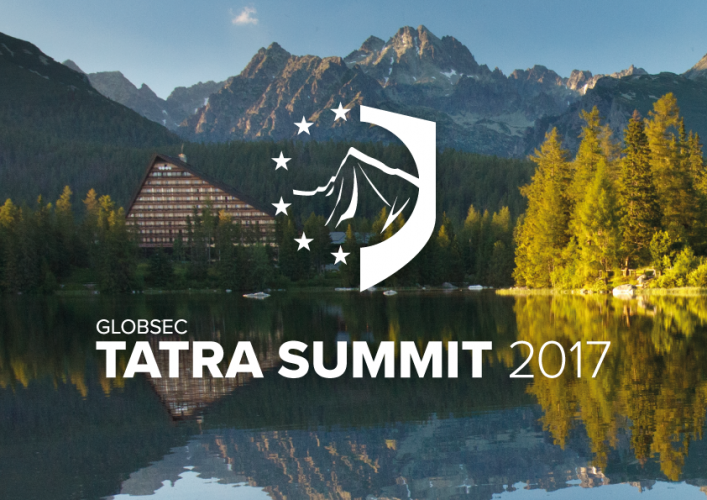GLOBSEC Tatra Summit 2017 – Top Takeaways – Friday

Here are some of the main discussion points from the opening sessions of GLOBSEC Tatra Summit 2017. Keep an eye out for more coverage over the course of the rest of the event, and in the days to come.
Keynote Address: What Next for EU Integration
The last year of EU cooperation was hard and the burden of shaping the future of the EU is on us, said Maroš Šefčovič Vice-President for the Energy Union, European Commission as he delivered the opening keynote speech at GLOBSEC Tatra Summit 2017. Despite the challenges Europe has been facing, our unity remains the EU´s strongest currency. There is an appetite for more integration and greater vigor and enthusiasm to engage in this process as well as the belief that the transformational power of the EU will enable us to build a stronger Europe.
Session 1: Europe’s Future: More or Less or What Kind?
In this session, several Secretaries of State for European and Foreign Affairs and a member of the European Parliament discussed the role that the Visegrad Group should play in shaping the future of the European Union. The discussion acknowledged that there was a need for more collective thinking. Yet, while the EU longs for big ideas on its future, it also needs to deliver smaller concrete and tangible results to demonstrate its value to its citizens. Status quo is not an option.
Session 2: Competitive Europe: Creating Sustainable Jobs for the 21st Century
Despite its indisputable benefits, globalization and technological advances have not benefitted all Europeans equally. Optimising production through relocations, automatization, and more, have limited the creation of decent and sustainable jobs in the EU. The guest speakers in this panel emphasized, however, that by focusing on skills and better education Europe’s governments will be in better shape to provide its citizens with sustainable employment opportunities Making these much-needed changes begins on the national level. In doing so, Europe also needs to ensure that its training and education strategies do not waver over time and can weather future recessions.
Main breakout session: Building an Entrepreneurial Europe
Boosting EU entrepreneurship was the theme of GLOBSEC Tatra Summit’s first ever breakout session. Here, leading business thinkers identified the EU’s capital markets as one of the main stumbling blocks to further entrepreneurial progress. Overregulation, the unwillingness of EU member states to relinquish control over their capital markets were also highlighted as impediments to a better and more entrepreneurial friendly ecosystem. Building a more entrepreneurial Europe rests on tackling these problems head-on.
Focus Group A: Energy Policy in the EU: Harmonising Europe's Climate Vision and Energy Needs
Europe is vulnerable to an oversupply of electricity generation assets and at high risk of stranded assets. These were the key messages of this Focus Group, which featured speakers from the public and private sector, as well as GLOBSEC’s Policy Institute. As the panel saw it, Europe’s energy industry is not investing without some form of a feed-in tariff or of subsidy. Nevertheless, demand response is in early stages and clearly has tremendous potential. In addition, ETS, a simplified and transparent climate policy mechanism remains the system to follow.
Focus Group B: Creating a Digital Ecosystem
New technologies are emerging rapidly, and the EU’s procurement, adoption, and regulation must keep pace with opportunities and risks. This was one of the key messages from this focus group. At the same time, new competencies are also vital to help digital ecosystems reach their full potential and make Europe more interconnected. Once again, developing the skills required for the evolving digital economy and society f requires new models of education, training, and development. Europe must also remain cognizant that digitization is by no means at an end, a situation that that should also empower the continent to create new forms of governance, industry, and productivity.
Focus Group C: Delivering a Future Perfect Europe
While Europe seems more divided than ever, there is also a will and ambition to ensure that the integration project keeps moving in the right direction. And with Britain set to leave the EU in 2019, the rest of Europe will increasingly look to strong Franco-German cooperation to lead the way forward. Yet, as highlighted by our distinguished guests in this Focus Group discussion, a greater understanding and solidarity between EU state will be essential for the difficult years ahead.